From pickleball to bike polo, opportunities to find community while being active abound in WNC — and you don’t have to be traditionally athletic to join in the fun.


From pickleball to bike polo, opportunities to find community while being active abound in WNC — and you don’t have to be traditionally athletic to join in the fun.
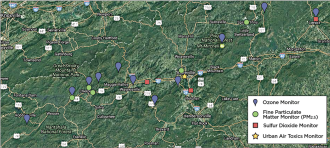
We all have to breathe to live, and the good news is that here in Western North Carolina, the quality of the air we all share is much better than it was just a few years ago. Across North Carolina, government employees are monitoring air quality and the associated health risks to make sure they stay within specified legal parameters. Meanwhile, citizen volunteers are also collecting data and working to make more information available to the public.

“Microfibers come off polyester clothes in the washing machine, and those particles pollute waterways,” says Grace Gouin, strategist at Echoview Fiber Mill in Weaverville. Streams are so loaded with the synthetic stuff that, in theory, fish are a certain percent yoga pant.

This year, the city of Asheville and its partners got serious about the environment, scheduling not just a mere Earth Day celebration, but a full roster of activities for Asheville Earth Week.

Part protest-sign-making party, part community art event, SignsUp Asheville held its first pop-up party in the gym of Odyssey School on Saturday, April 15. The gathering of artists and activists provided everything someone attending a political rally, demonstration or march could need to make make a point — artfully.

Asheville and Buncombe County have worked for several years on plans to reduce the area’s solid waste stream, but implementing “pay as you throw” and municipal composting programs remain in the realm of good ideas rather than reality or even future plans. But the city says it hasn’t given up on initiatives to divert more waste away from the landfill.
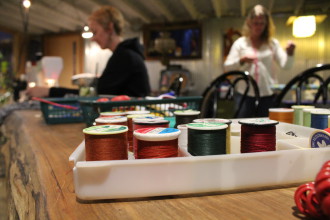
Industry studies show consumers are growing tired of fast, disposable fashion. In addition to a greater awareness of where clothes come from and the impact of their production, a new interest in extending the life of clothing or reusing materials to create new garments is fueling a resurgence of sewing skills in this region and around the country.

After the annual show of tulips at Biltmore fades, another floral exhibition bursts into bloom, this time with plants native to the Southeast. Biltmore’s 15-acre Azalea Garden is the largest on the grounds and features one of the country’s most extensive collections of the multicolored shrubs.
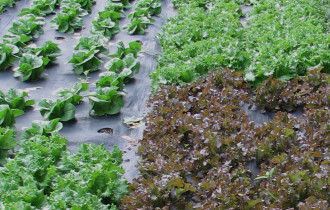
A program of the USDA shares the cost of organic certification with farmers, reducing the burden of obtaining organic certification and accessing a broader market for their produce. A recent change places the administration of the program with the Farm Service Agency, which operates out of 72 local offices across North Carolina.

Jeremiah LeRoy is Buncombe County’s first sustainability officer. Learn more about him and the new position with Xpress’ Q&A.

When the WNC Nature Center learned the city of Asheville’s subsidy for the facility would shrink by more than half over three years, the environmental education attraction wasn’t immediately sure how it would make up the funding shortfall. But it didn’t take long to figure it out: the Nature Center met the three-year goal in only one year. The attraction is expanding to meet demand, and visitation is setting new records nearly every month.

As plans move ahead for the Interstate 26 Connector project through Asheville, community members look back to reflect on the profound impact major road construction projects have had on the region.
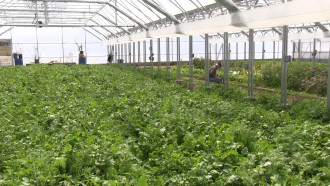
Regenerative farming methods that use cover crops and other techniques to build soil fertility and boost the resilience of crops to stresses like drought are taking root in North Carolina. Gabe Brown and Russell Hedrick are among the pioneers in these techniques who will be speaking in WNC in connection with the Organic Growers School’s spring conference and related events.
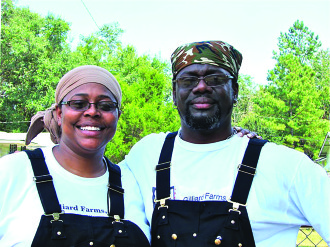
The Organic Growers School’s Spring Conference is hardly a new event: The annual gathering of farmers, gardeners, homesteaders and assorted sustainability seekers turns 24 this month. But organizers say those attending this year’s edition, whether they’re newbies or longtime conference regulars, will surely dig up some novel information.

Asheville
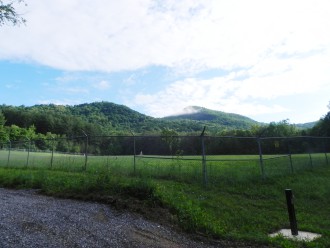
A group of innovative strategies collectively known as “in situ remediation” could dramatically improve the prospects for addressing groundwater and soil contamination at several local hazardous waste sites more quickly and at lower cost.
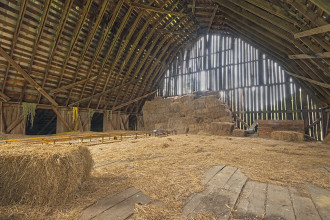
From the Ani Katuah to white settlers and tobacco farmers, barns and buildings have played a central role in defining the culture of the Southern Appalachians. Shelter on the Mountain: Barns and Building Traditions of the Southern Highlands traces the evolution of local building practices.
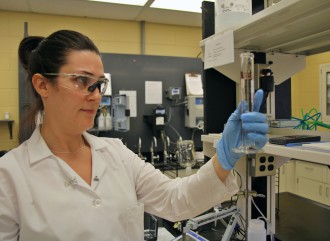
Western North Carolina enjoys an abundant supply of high-quality water. Even so, experts say, whether you get your water from the city, a well, a bottle or through a home filter, it’s important to remain vigilant to ensure that the water you drink is really clean, safe and healthy.

After diving into Lake Junaluska, Polar Plunge participants (and spectators) can enjoy a chili lunch and several bonfires. Proceeds from the fundraiser, which takes place on Saturday, Feb. 4, will go to Haywood Waterways Association’s environmental education and stewardship programs.
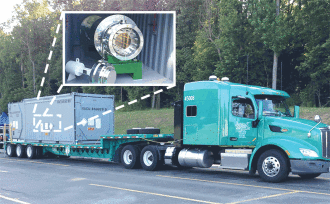
A federal judge last week heard a challenge to Department of Energy plans to transport liquid radioactive waste from Canada to the Savannah River Site disposal facility near Aiken, S.C. If the plans move forward, waste could move through Western North Carolina, activists say, and shipments could begin as soon as February.
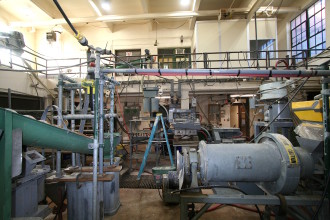
For 70 years, the Minerals Research Laboratory on Coxe Avenue has collaborated with mining companies and educational institutions to develop more efficient processes for extracting the state’s mineral resources as well as ways to reuse potentially harmful byproducts.